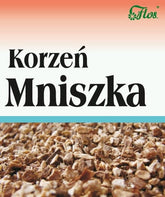Coconut oil - a versatile product in the kitchen and not only
Which coconut oil is best for cooking, and which pressed oil is suitable for cosmetic treatments? Is it worth choosing products labeled as organic, using refined oil, or opting for unrefined coconut oil? As you can imagine, not all oils are created equal, so it's worth taking a closer look at their properties and the content of valuable ingredients.
Organic coconut oil and its main benefits
Certified organic coconut oil is obtained from plants grown according to the principles of sustainable agriculture. The fruits of the coconut palm ripen and undergo appropriate processing after harvest. However, the organic origin of the raw material does not determine the amount of valuable ingredients it contains, but rather the way the oil is processed.
Coconut oil can be extracted in several ways, including:
- by pressing from fresh coconuts that have not been exposed to high temperatures (unrefined, unrefined, or extra virgin oil). The oil should be sourced locally (in Thailand, Indonesia, the Philippines, or Sri Lanka), which is usually indicated on the packaging.
- by pressing copra oil —the flesh of ripe, sliced coconuts. Depending on the producer's preference, coconuts can be dried naturally in the sun or heated over fires.
Unrefined organic coconut oil is processed to retain its richness in nutrients such as folic acid and vitamins C, E, and B. It also contains potassium, iron, calcium, magnesium, and iodine. Cold-extracted coconut oil is rich in MCT fatty acids, which have highly beneficial effects on the entire body. Their metabolism occurs without the involvement of insulin, meaning the oil does not raise its blood levels, which are important for diabetics.
The largest percentage is lauric acid, which supports the body in the fight against viruses, bacteria, and fungi (hence the beneficial effects of coconut oil on the skin). MCT acids also influence the regulation of blood cholesterol levels, helping to lower LDL (harmful) cholesterol and increase levels of the beneficial HDL fraction.
The refining (purification) process is intended to extend the oil's shelf life while also increasing its smoke point, which in the case of coconut oil can reach up to 204°C. This makes refined coconut oil one of the best vegetable fats for frying. Oil refining is a multi-stage process in which the pulp and then the oil itself are subjected to high temperatures and pressures. This processing does not damage the medium-chain MCT fatty acids (rich in triglycerides) contained in the oil, but unfortunately sterilizes it and removes minerals, chlorophyll, and protein. Refined oil is therefore primarily suitable for high-temperature food processing without compromising flavor or aroma.
Coconut oil and its best uses
Coconut oil is suitable for both cooking and as a universal cosmetic for the entire body. In the kitchen, the raw oil can be used to prepare cold dishes such as desserts, cakes, and smoothies. Refined oil can be used for frying and baking. Outside of the kitchen, coconut oil is used, for example, in the care of:
- SKIN : e.g. as a base for the preparation of peelings, masks, as well as for make-up removal and the method of two-step skin cleansing;
- HAIR : (especially low porosity hair) as a serum for the ends of the hair or when oiling the hair before washing and protective oil that blocks UV radiation.
THE PUBLISHER'S CHOICE
Dried plums 1 kg BIOGO
- €7,01
- €7,01
- Unit price
- / per
Dried White Mulberries 500 g ORGANIC
- €5,84
- €5,84
- Unit price
- / per
Almonds 1 kg BIOGO
- €11,69
- €11,69
- Unit price
- / per
Cranberries sweetened with apple juice organic 1 kg BIOGO
- €16,37
- €16,37
- Unit price
- / per
Dried dates 1 kg BIOGO
- €4,21
- €4,21
- Unit price
- / per
Unpeeled buckwheat groats 1 kg BIOGO
- €2,81
- €2,81
- Unit price
- / per
Walnuts 800 g BIOGO
- €8,65
- €8,65
- Unit price
- / per
Peeled sunflower seeds 1 kg BIOGO
- €3,04
- €3,04
- Unit price
- / per
PULLED ORGANIC SUNFLOWER SEEDS 1 KG BIOGO
- €4,44
- €4,44
- Unit price
- / per












































































































































